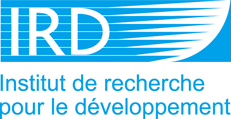Jean-François Guégan
Jean-François Guégan is 49-year old, married, three children. He received his Ph.D. in community ecology and population dynamics of host-parasite interactions from the University of Montpellier (France), and carried out his postdoctoral studies in Great Britain. He is currently Senior Research Fellow - Director of Research at the French Institute for Research in Developing Countries (I.R.D.) in the Genetics and Evolution of Infectious Diseases national research unit between I.R.D., C.N.R.S. and the University of Montpellier, Southern France. After co-heading this team, he is still responsible for a research group working on the ecology of infectious diseases. He is currently involved in studies on the ecology of infectious diseases, specifically with respect to i) their temporal and spatial dynamics (pertussis, measles, cholera fever, dengue fever), and their associations with climate variability and change, ii) the re-emergence of infectious and parasitic diseases (Buruli Ulcer, cholera...) and the linkages between biodiversity alteration and ecosystem changes on disease emergence, and iii) the macroecology of infectious diseases with a special interest on emerging patterns. He is an Adjunct Professor at Montpellier University, in charge of courses on quantitative epidemiology, and global environmental change and health, and a Professor at the new French School of Public Health (EHESP) where he is in charge of an Interdisciplinary Research Centre on Globalization and Infectious Diseases. He is an international scientific expert for the U.N.E.P. Earth System Science Partnership in human health and ecosystem health, and WHO (Global Buruli Ulcer initiative), a member of the scientific council of both Afsset, the French agency for environmental health and safety, and HCSP, the French Council on Public Health, where he has been in charge of the French report on climate change and health. Within the European E.D.E.N. (Emerging Diseases in a changing European eNvironment) Integrated Research Programme, he is coordinating research on the linkages between ecosystem dynamics and change and disease emergence. He is a referee for up to 25 different international journals in epidemiology, parasitology and theoretical ecology. He is responsible for editing 6 hard books (Oxford University Press, Springer Verlag, De Boeck) and 3 special issues as a guest editor, up to 115 articles in international journals and 70 oral communications in international meetings and conferences. He likes Irish celtic music, (red) wine tasting and cooking.
EDEN (Emerging Diseases in a changing European eNvironment)
EDEN (Emerging Diseases in a changing European eNvironment) is an Integrated Project of the European Commission that aims to identify and catalogue those European ecosystems and environmental conditions which can influence the spatial and temporal distribution and dynamics of human pathogenic agents. The project develops and co-coordinates a set of generic methods, tools and skills such as predictive models, early warning and monitoring tools which can be used by decision makers for risk assessment, decision support for intervention and public health policies.
EDEN integrates research in 48 leading institutes from 24 countries. The eco-geographical diversity of the project area covers all relevant European eco-systems from the polar circle in the North to the Mediterranean basin and its link with West Africa in the South, and from Portugal in the West to the Danube delta in the East. EDEN is organized into a series of vertical Sub-Projects linked together by a series of Integrative Activities that include biodiversity monitoring, environmental change detection, climate change, disease modeling, remote sensing and image interpretation, information and communication.
If you wish to contact Jean-François Guégan, please click here




